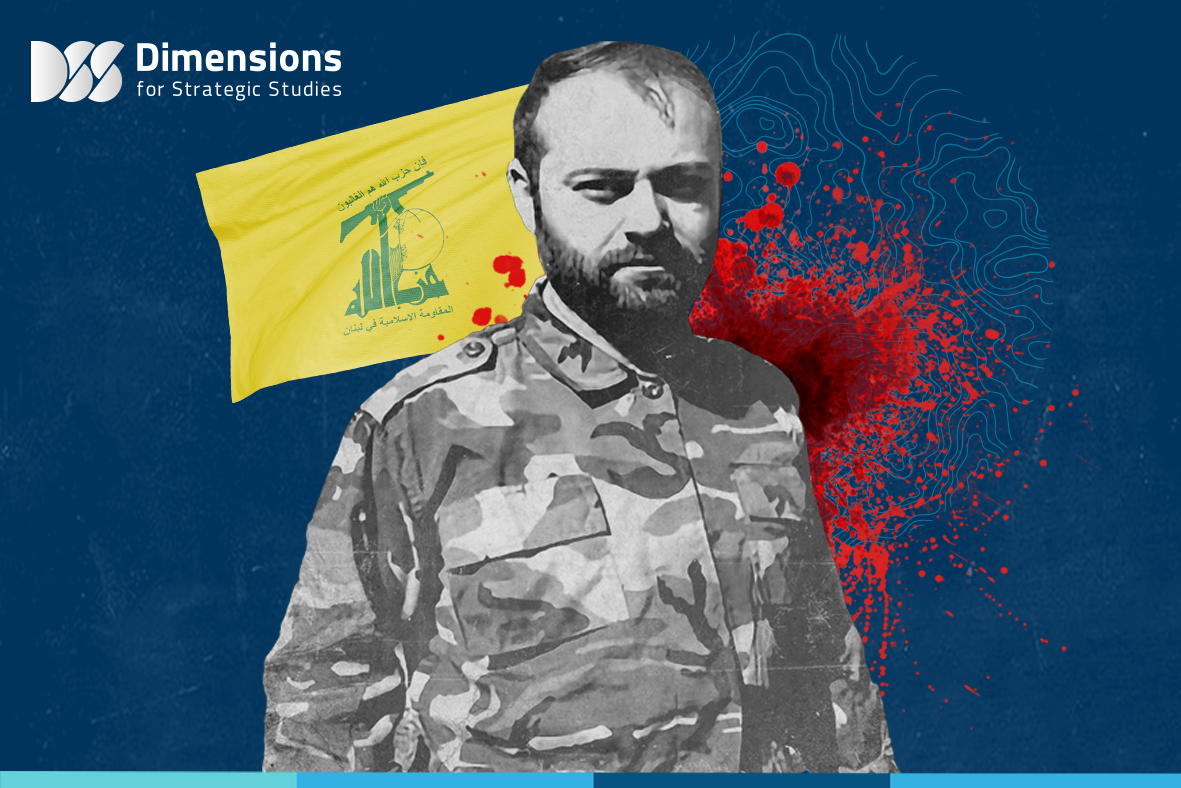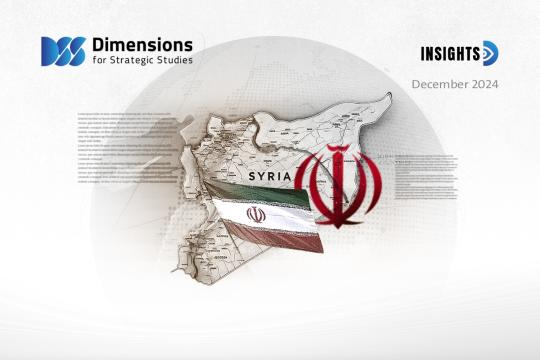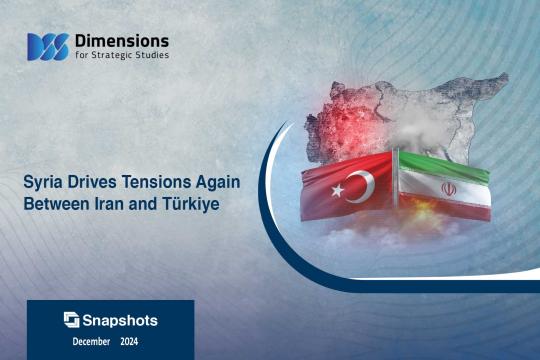
The Assassination of Hezbollah Member, Ali Mohammed Younes
2020-04-099832 view
Introduction:
A member of the Lebanese Hezbollah's security apparatus, Muhammad Ali Younes, was assassinated on April, 2020, which strongly shocked Lebanese circles, given the security roles he used to play.
However; there are many contradictory reports and narratives talking about how he was killed and the party behind killing him.
Muhammad Ali Younes comes from the village of Jibchit in southern Lebanon. He was part of the cadre of Hezbollah's security apparatus, and follows up on files related to Israeli agents and spies, according to Iranian news agencies, which also said that he was close to Qassem Soleimani, the former commander of the "Quds Force" of the "Iranian Revolutionary Guards Corps" (IRGC), who was assassinated in Iraq.
Two security officials said that the body of Younes was found next to his car Saturday evening between the towns of Qaqieh al-Jisr and Zawtar al-Gharbiya in southern Lebanon town of Nabatiyeh,. One of them said Younes was shot with four bullets in the chest and had at least two stab wounds.
Younes's bodyguard was also shot, and he was hospitalised . Originally, Younes and his bodyguard were in a mission to pursue a person, when they were caught in a deadly ambush in Wadi Zawtar, which was carried out by three cars.
However, Hezbollah members are rarely assassinated in Lebanon. Previously, the last assassination of a Hezbollah leader on Lebanese soil was carried out against Hassan al-Lakis, who was killed on March 03, 2013 by two gunmen in Beirut.
First, Potential Assailants
The assassination of Muhammad Ali Younes is a murder mystery, bearing the hallmarks of more than one party. In fact, three narratives have emerged. Such narratives would expose the perpetrators. Two potential ones have political and security dimensions, and the third has criminal motives.
1- The Israeli Mossad
However, such an assumption evokes the temporal context in which the operation has been carried out, as it comes about two weeks after the assassination of Antoine Hayek, Amer Al-Fakhouri's aide, on March 22, 2020. Hayek was killed in mysterious circumstances in fatal shooting by unknown persons inside his shop in the village of al-Mieh Mieh, east of Sidon, knowing that he worked as an assistant to Al-Fakhouri in the administration of the Khiam prison during the Israeli occupation of the south.
Obviously, many believe that the assassination of Younes may have come in response to the assassination of Hayek, who was apparently originally assassinated in response to Al-Fakhouri's release and smuggling to the United States through the American embassy, in an attempt by Hezbollah to regain some of what it lost popularly as a result of the military court's release of Al-Fakhouri under a green light from the party itself. Indeed, some of the Lebanese sources we had contacted said that Hezbollah circles are promoting that Younes may have personally assassinated Antoine Hayek, or was a direct supervisor of the assassination.
Nevertheless, announcing the death of Younes as a "martyr" by Hezbollah, in fact, has largely motivated some parties to adopt this scenario, meaning that he was killed by a hostile party as a result of his work in the party. Also, Iranian parties contributed to this trend through what official and semi-official agencies broadcast about his security role in the party.
2- Assassination under infighting considerations
This scenario is in contrast to the previous one. According to some circulating assessments on the background to the assassination, the party (Hizballah) has killed Younes after discovering his ties with the Israeli side.
This scenario is reinforced by the fact that the assassination took place between the towns of Zawtar al-Gharbia and Qaqa’iyyatal-Jisr in Nabatiyeh, which is an area under strong security monitoring by Hezbollah, as it is very close to the party’s headquarters in the vicinity of Zawtar; therefore, targeting a leader or cadres’ members in Hezbollah by a hostile party in this area is considered like an adventure.
3- Just a murderer
According to press reports, Hezbollah arrested the injured Younis’s bodyguard after he was transferred to the hospital and immediately started interrogating him. Consequently, the party suggested that the bodyguard was a real suspect, and he might have had a role in assassinating Younes, for criminal reasons; and that he might have got injured as a result of Younes’ resistance to him.
However, other assumptions suggest that the assailant /s are non-political parties, and that the attack was originally carried out for criminal reasons.
Such narrative; however, has no supportive evidences, especially since the party considered and mourned Younes as a martyr, and it was not obliged to do so, if the matter was just a normal murder.
Second: Reactions to the killing of Younes
Hezbollah posted a death announcement hours after the body of Muhammad Ali Younes was found, and said that he passed away as a martyr while he was defending the “Islam of Muhammad” in an attempt to add a political and security dimension to the assassination, without providing any additional details about how he was assassinated.
No Lebanese reaction to the incident was reported beyond Hezbollah's response, which did not go beyond an obituary.
On the other hand, the Israeli sources contented themselves with quoting the Lebanese sources, without adding any further details by Israeli parties.
Conclusion
According to the reports we have obtained, the party statement, and what was published by official and semi-official Iranian agencies, it appears that:
Muhammad Ali Younes was not an ordinary member of Hezbollah, but at the same time he was not a leader either, and perhaps he was a leader of a third or fourth rank. And he was involved in a security file.
Younes was killed in an area under the full security control of the party, which means one of two possibilities:
- Either the party has killed him, but in a way that seems as if an external assassination was carried out by a hostile party.
- Or that a party with very high capabilities decided to assassinate Younes in Hezbollah's stronghold, in order to send a message to it about the extent of that party's ability and its unlimited penetration into the Lebanese and Hezbollah's ranks.
One can note that Hezbollah did not react to the assassination with more than issuing a brief statement; which is not common, when it comes to an Israeli assassination. And this does not mean, on the other hand, that the party was the one that killed Younes. This likely
means that Hezbollah does not want to provoke a discussion about the assassination; because in this way it exposes the extent of the Israeli infiltration (assuming that the party will accuse Israel) into Hezbollah's ranks and areas of control, which hits the party’s propaganda, especially among its supporters.
Read more: The Assassination of Hezbollah Member, Ali Mohammed Younes





